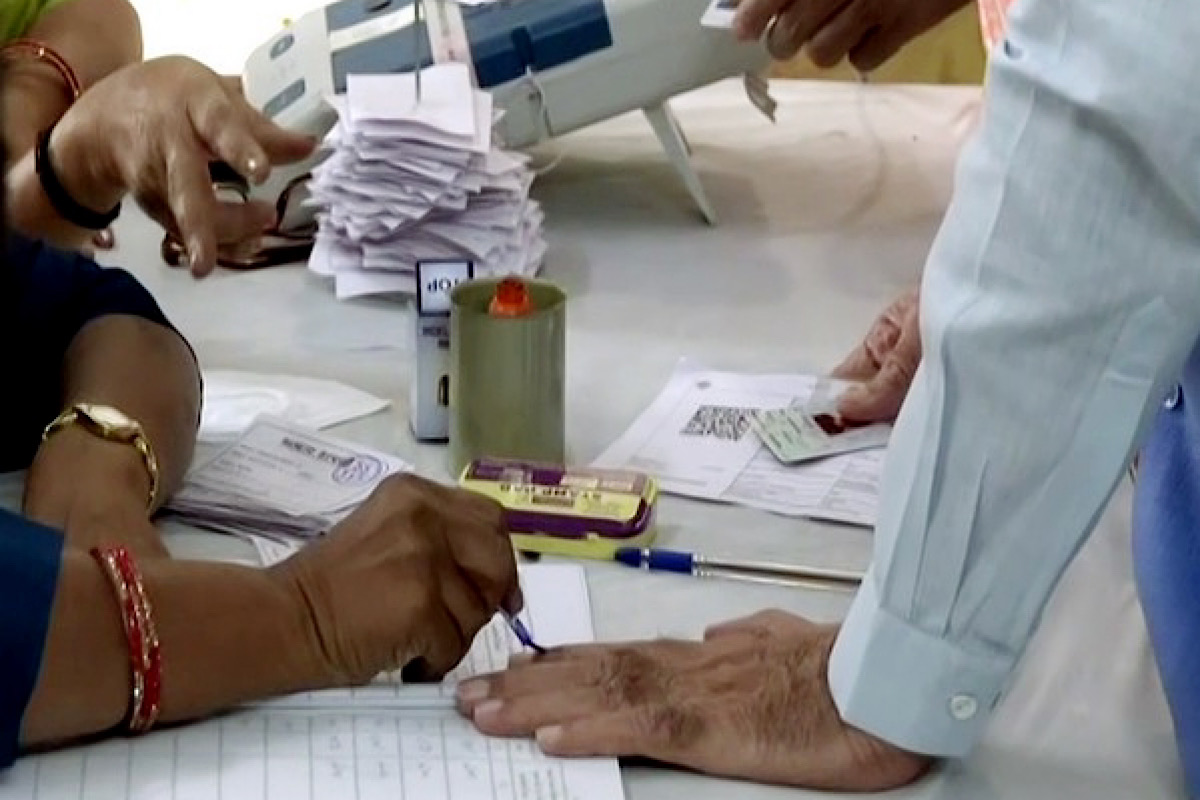Shinde to head caretaker Govt until Mahayuti Cabinet is sworn-in
The swearing-in date of the BJP-dominated Mahayuti government has not been decided, but the word is that it could be Wednesday or even scheduled for December 1 or December 2.
Reports of delays, missing voter names, and inadequate facilities have highlighted systemic failures in the electoral process.

A voter gets his finger marked with indelible ink before casting his vote. (ANI Photo)
The low voter turnout of 49.01 per cent in Maharashtra, particularly the Mumbai constituencies, during Monday’s fifth phase of the Lok Sabha elections ~ the final phase in the state ~ has sparked widespread concern and criticism, with various factors contributing to the disenchantment among voters. Long queues, scorching heat, and organisational inefficiencies marred the voting experience for many citizens across the state. At the forefront of these concerns is the issue of poor management at polling stations. Reports of delays, missing voter names, and inadequate facilities have highlighted systemic failures in the electoral process.
Voters have voiced frustration over the lack of basic amenities, particularly in hot and humid conditions. Political leaders from opposition parties have seized upon these issues to criticise both the ruling BJP and the Election Commission of India (ECI). Accusations of deliberate voter suppression in certain regions have fuelled tensions and eroded public trust. In light of these challenges, there is an urgent need for the ECI to address the shortcomings and ensure that future elections are conducted with greater efficiency and transparency. This requires a comprehensive review of existing protocols and the implementation of measures to enhance accessibility and convenience for voters. Ultimately, the success of a democratic society hinges on the active participation of its citizens in the electoral process.
By addressing the underlying issues that contributed to the low voter turnout in Maharashtra, the ECI can uphold the principles of democracy and safeguard the integrity of our electoral system. The irony of a lower turnout in Maharashtra than in Baramulla cannot escape Nirvachan Sadan. Amid the challenges faced during the election process, it is crucial to recognise the resilience and determination of voters who braved odds to exercise their democratic right. Despite obstacles, many individuals remained committed to casting their ballots, demonstrating their commitment to the democratic process. Their actions serve as a testament to the enduring strength of democracy and the importance of civic engagement in shaping the future of our nation. While there were shortcomings in certain aspects, the ECI plays a crucial role in upholding the democratic principles of fairness and transparency.
Advertisement
Encouraging continued dialogue and collaboration between the ECI and various stakeholders can lead to constructive improvements in future electoral processes. Looking ahead, it is imperative for all stakeholders, including political parties, election authorities, and civil society organisations, to work collaboratively towards enhancing the electoral infrastructure and ensuring a smoother voting experience for all citizens. This necessitates not only addressing immediate concerns such as inadequate facilities and logistical challenges but also implementing long-term reforms to strengthen the electoral framework. It must be borne in mind that the ECI does not have fulltime staff but only appropriates local officials to oversee the polling process. Thus it is only partly to blame for the shortcomings reported by voters; the state govern
Advertisement